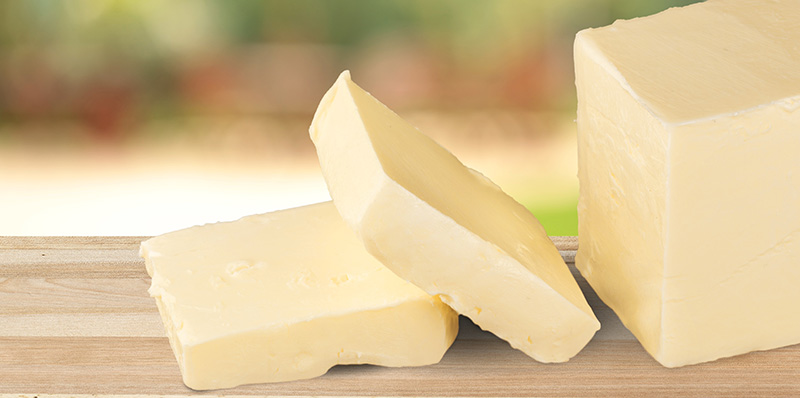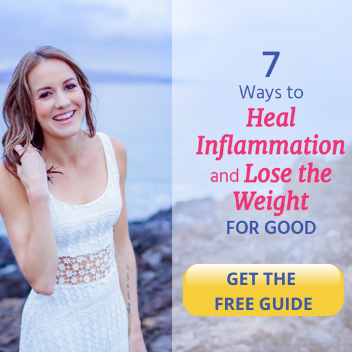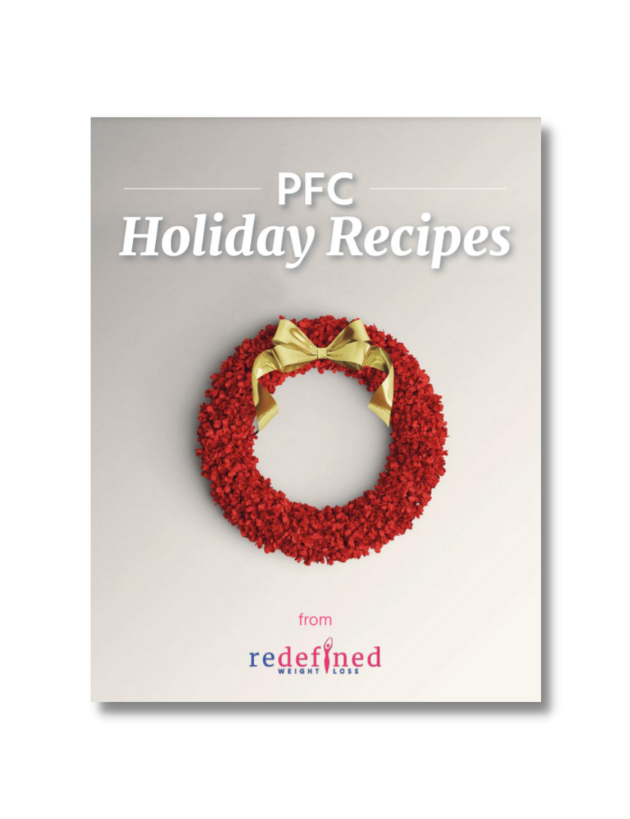Is fat making me fat? Ever since the late 1970s, we’ve been obsessed with low fat foods. The media is still supporting this message through its marketing of “low-fat,” “lite,” “fat-free,” and the one I love to hate the most, “skinny” products. We are still being taught that skimping on fat will help with weight loss and prevention of chronic disease. The message that cutting fat will help with weight loss and prevention of chronic disease is one that has been conveyed to us for quite some time now, and was actually NEVER based on any scientific reason.
So, let’s ask ourselves, how has that been working for us? Has the dramatic reduction of fat in our diets really helped us become healthier and less fat? Or is it possible that fat might not really be making us fat? Here’s the reality…
Fat is NOT making us fat. Ever since this fat-phobia began, Americans coincidentally have packed on more and more pounds, leading to the greatest obesity epidemic in world history. Frank Hu, MD and professor of nutrition and epidemiology at the Harvard School of Public Health says, “The low-fat diet backfired. America’s obesity epidemic skyrocketed even while our fat intake went down.” Walter Willett, MD, researcher and chairman of the Department of Nutrition at Harvard School of Public Health says this: “Fat is not the problem. The idea that fat in food makes fat in and on our body is incorrect. Low fat diets don’t work.” This concept may be difficult to grasp as marketing tactics, and even trusted professionals, have brainwashed us and (more often successfully than not) convinced us to believe that fat is the enemy. Thankfully, compelling research is revealing otherwise, and finally, many nutrition experts are hopping onboard with the true message about fat. It is time to change the way we think about fat and overcome our unhealthy fear of it.
Then what’s really making us fat? Fat adds flavor, so if it’s removed, something else must be added to get the same (or comparable) taste. As Dr. Robert Lustig puts it, “When you take the fat out, the food tastes like cardboard.” So, what’s added? Usually sugar and refined carbohydrates (which turn into sugar in the bloodstream), refined vegetable oils, or artificial sweeteners that interfere with your metabolism. Gary Taubes, author of “Why We Get Fat,” states that not fatty foods, but carbohydrates are to blame for the rising obesity rate. Carbohydrates are converted to sugar as soon as they reach the blood stream, which secretes the fat-storing hormone, insulin to come and move this sugar to storage. Fat and protein, on the other hand, aren’t metabolized as sugar, and act as “buffers” to keep our blood sugar levels stable. Glucagon is our “fat burning” hormone and can only be released and put to work when blood sugar levels are stable. Consuming fat and protein along with carbohydrates is an effective strategy for preventing weight gain and keeping your body and brain satisfied and your blood sugar levels stable. Even Harvard says it’s important to replace the refined carbs with healthy fat.
The perfect balance. Over the years, saturated fats and trans fats have given fat a bad rap, but healthy fats are key components of a healthy balanced diet. Fat is essential for every cell in our body. It coats cell membranes and plays a central role in the functioning of our nervous system, brain function, skin integrity, mineral absorption and has healing and immune properties, not to mention it supports metabolism. Fats help us feel full and satisfied, ward off cravings, aid in healthy hormone production, enhance mineral absorption and boost healing during inflammatory processes. Fat helps lower the risk of diabetes, heart disease and obesity. Did you know that over sixty percent of your brain is made of fat? Think about what it does to your brain when you deprive it of its own building block. A healthy diet includes a combination of protein, carbohydrates AND Fat. This should be the combination you have every time you eat (think PFC!)
Eat fat for weight loss. Yep, you read that right. Is it hard for you to believe that cooking your eggs in butter is nutritious? I understand that eating fat to lose weight goes against everything you may have been taught about fat, but science is backing it up. If you’ve eliminated fat from your diet and you start to incorporate it in again, it won’t take long for you to notice that you feel more energized. You need fat for your metabolism to work properly. Low-fat means more hunger and more cravings. Consider the effect different foods have on your mind and your body. Do you feel satisfied when you eat “lite” products? Can you stop after eating a half cup of “low fat” ice cream? What about “fat free” yogurt? Fat contributes to the satiety factor, so when you have fat with your meals and snacks, you are less likely to overeat later on. Compare snacking on nuts and berries to having a “100 calorie” pack of crackers. It’s hardly a comparison—the fat in the nuts helps you feel satisfied whereas the carbohydrates in the crackers leave you craving more.
The right type of fat. Not all fats are created equal. The human body is designed to run efficiently on high quality fats, so the right kinds of fats will actually support your metabolism, and the wrong ones won’t. Your body and brain need real, quality fats — not the trans-fats and damaged oils found in processed, refined foods. Healthy fat is found in real foods like salmon, olive oil, coconut oil, butter, heavy cream, avocados, peanut butter, cheese, nuts and seeds. Processed foods tend to contain damaging fats such as trans fats and man-made oils like soybean, corn, cottonseed, canola, safflower and sunflower oil.
Say “No” to Trans Fats. Trans fats are just about the worst thing you could possibly consume. They are responsible for increasing inflammation and triglyceride levels, and newer research is suggesting they, along with sugar, may be the true culprit of heart disease. (Let cholesterol off the hook!) Trans fats are used to increase shelf life of foods that aren’t good for us to begin with. They are hidden in commercial baked goods such as cookies, cakes, pies, as well as fried foods, such as donuts, french fries, and even shortenings and margarines (but not butter)! Your best bet is to avoid these junk foods altogether, and play detective with the ingredient lists on the label of foods you are eating. Search the ingredients list for the terms “partially hydrogenated vegetable oil” or “hydrogenated vegetable oils.” (Fancy terms for this felon.)
The Big, FAT Takeaway Message: It is time to change the way we think about fat and overcome our unhealthy fear of it. Don’t deprive your brain and body of the healthy fat that it needs. Low-fat and fat-free diets aren’t healthy. Stress less by enjoying real, full-fat foods instead of indulging in misleading items that are “light,” and “fat-free.” If you’ve been depriving yourself of fat, don’t be surprised if you begin to notice increased energy levels and better concentration as soon as you start eating it once again. When I introduced healthy fats back into my diet after several years of mostly avoiding them, I was amazed at how much better I felt and how much longer I could focus on my work. Now, I buy full fat yogurt and cottage cheese, fry my eggs in butter or coconut oil, eat whole avocadoes in a single sitting, pour heavy whipping cream over a bowl of blueberries for a bedtime snack, and believe it or not: I haven’t gained any weight. (In fact, I’m in the best shape I’ve ever been.) Enjoy your fats while knowing you are doing good for your body. Transforming your mind and NOT living in fear of fat will change your body and your life. Check out 5 Big FAT Changes for practical ways to incorporate fat into your life.
Now, go grab my BEST tips to BOOST your metabolism by clicking the pink button below!












Are you sure about the canola oil? I personally avoid it like the plague due to it reportedly having trans fats, though no one advertises it. At least, the cold-pressed part makes it a little better. The massive processing and bleach-washing that it usually undergoes is the other half of what scares me off. It’s not like I want to use canola anyway, I was just wondering.
Not my #1 pick that’s for sure, but when expeller-pressed, it ensures that canola, palm and peanut oils aren’t damaged.
the trouble is that cold pressed canola is pretty rare, in fact i’ve never seen it for sale, and there are plenty of alternatives
and this is how most canola oil is made http://www.youtube.com/watch?v=Wqm2lJjkmRI
This is a great article! After recently completing my schooling to become a Dietitian this was a tough realization for me. I wish they spent more time teaching us things like this in our course work. I have a question about coconut oil, what is the best kind to purchase? Should it actually be creamy looking almost solid texture or more like a physical oil? I bought Spectrum Expeller Pressed Coconut Oil and it is solid.
It’s cliche but my recommendations are different for everyone, based on their current state of health, lifestyle, activity level and goals. My guess is most nutrition labels suggest more than 65 grams of carbohydrate per day (many recommendations are close to 200!) but 65 sounds better than 200 to me. And Saturated FAT ROCKS! So yes, I am a lover of heavy cream and fat in yogurt. Read the new book Cholesterol Clarity for more on this (http://www.cholesterolclarity.com)
I understand the frustration! Check out this article written by a doctor: http://primaldocs.com/opinion/must-respectfully-disagree/